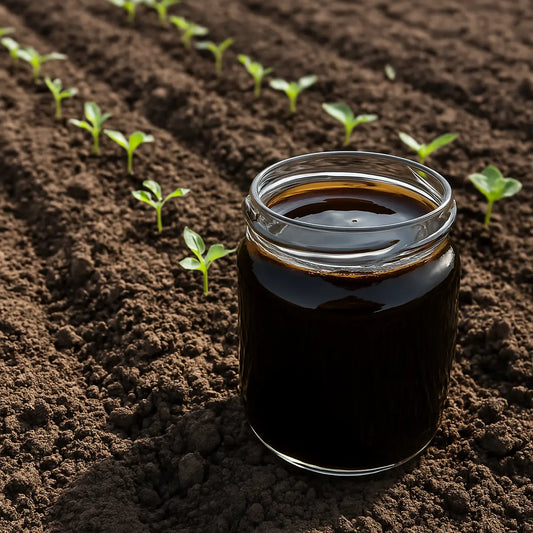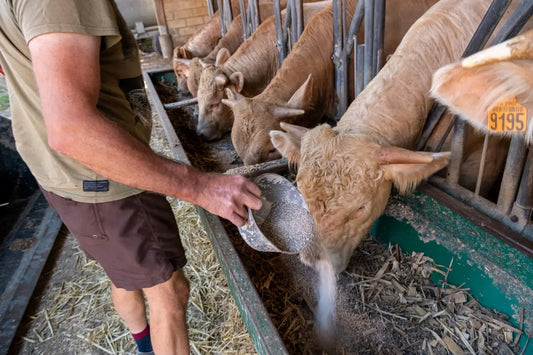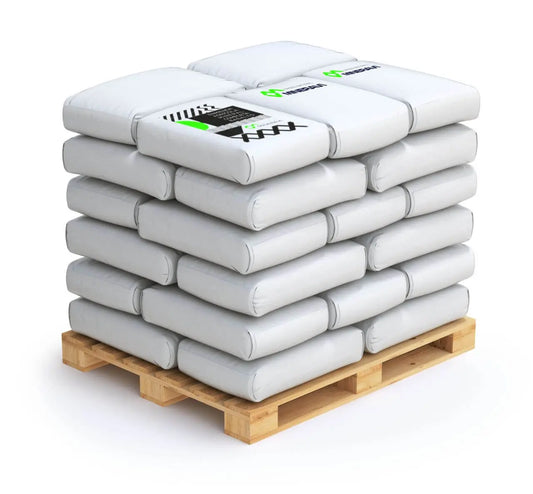Collection: Animal feeding
Minerals are inorganic nutrients found in soil that are essential for the health of plants, animals, and humans. Minerals can be macrominerals or microminerals (also known as trace elements).
-
Macrominerals: Required in larger amounts, some examples include calcium, phosphorous, magnesium, sodium, and potassium. These minerals are important for functions such as bone formation, regulation of fluid balance, and muscle contraction.
-
Trace minerals: required in smaller amounts, but equally important. Some examples include iron, copper, zinc, selenium, and iodine. These minerals are necessary for functions such as red blood cell production, hormone formation, and immune system function.
It is important to note that animals can obtain minerals from both the food they eat and the water they drink. In some cases, mineral supplements may be needed to ensure that the animals receive the necessary nutrients.
List of minerals that are commonly added to animal feed, either directly or as additives in compound feed:
-
Calcium (Ca): Essential for the formation of bones and teeth, as well as for muscle contraction and blood clotting. It is found in ingredients like bone meal, calcium carbonate, and dicalcium phosphate.
-
Phosphorus (P): Important for the formation of bones and teeth, and plays a key role in energy production. It is found in ingredients such as dicalcium phosphate, monodicalcium phosphate, and bone meal.
-
Magnesium (Mg): Necessary for neuromuscular function and energy metabolism. It is found in ingredients like magnesium oxide and magnesium sulfate.
-
Potassium (K): Essential for muscle function, acid-base balance and osmotic regulation. It is found in ingredients like potassium chloride and potassium sulfate.
-
Sodium (Na): Important for fluid balance and nerve function. It is found in ingredients such as sodium chloride (common salt).
-
Chlorine (Cl): Necessary for acid-base balance, nerve function and digestion. It is found in ingredients like sodium chloride and potassium chloride.
-
Sulfur (S): Component of certain amino acids and vitamins, and necessary for the synthesis of proteins. It is found in ingredients like magnesium sulfate and copper sulfate.
-
Iron (Fe): Essential for the production of hemoglobin and the function of the immune system. It is found in ingredients like ferrous sulfate and iron oxide.
-
Copper (Cu): Necessary for the production of hemoglobin and the formation of connective tissue. It is found in ingredients like copper sulfate and copper oxide.
-
Manganese (Mn): Important for skeletal development and reproduction. It is found in ingredients like manganese oxide and manganese sulfate.
-
Zinc (Zn): Necessary for growth, reproduction and immune function. It is found in ingredients like zinc oxide and zinc sulfate.
-
Iodine (I): Essential for the production of thyroid hormones and growth. It is found in ingredients like calcium iodate and potassium iodide.
-
Selenium (Se): Important for antioxidant function and reproduction. It is found in ingredients such as sodium selenite and selenium-enriched yeast.
Mineral additives in animal feed.
-
Sepiolite: Sepiolite is a hydrated magnesium silicate mineral with a fibrous structure and high absorption capacity. It is used as an additive in animal feed to improve digestibility and absorption of nutrients, as well as to prevent and treat diarrhea and other intestinal disorders. It can also help reduce ammonia levels in the farm environment.
-
Bentonite: Bentonite is a type of clay used in animal feed to improve the quality of the diet, as it has binding properties that can bind and remove toxins and heavy metals from the digestive tract of animals. It can also improve the consistency and texture of animal feed, making it easier to eat and digest.
-
Kieselguhr: Kieselguhr, also known as diatomaceous earth, is a type of sedimentary rock that is composed primarily of silica and diatoms. It is used as an additive in animal feed due to its ability to absorb moisture and keep food dry. It can also help to reduce the levels of insects and parasites in the farm environment, which in turn can improve the health and welfare of the animals.










